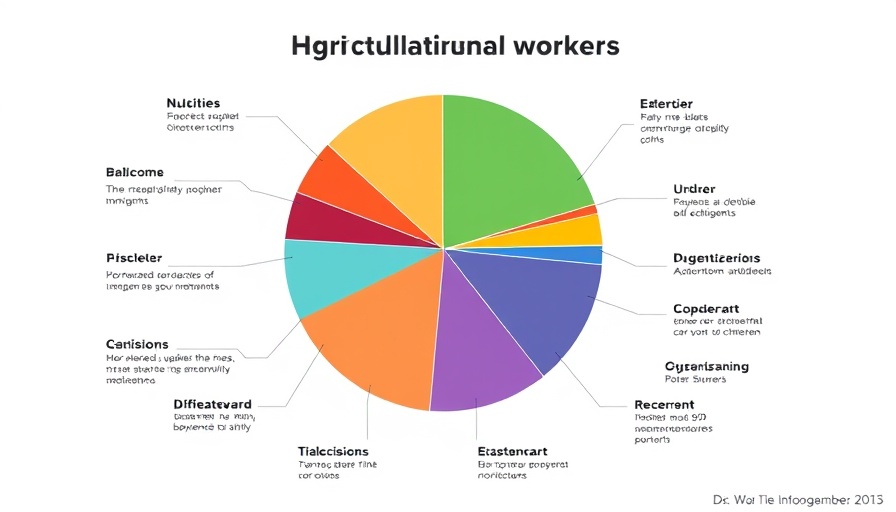
Understanding the Impact of Immigration Restrictions on U.S. Agriculture
The vibrant tapestry of the U.S. agricultural workforce has deep roots in immigrant labor, especially among Hispanic noncitizen workers who play an essential role in food production. Recent immigration policies, particularly those initiated during the Trump administration, have put these critical workforce dynamics in jeopardy. With over 2.6 million agricultural workers nationwide, a significant percentage of whom are noncitizen immigrants, these changes can have profound repercussions on food security and health.
Who Are Our Agricultural Workers?
According to the latest data, around 73% of agricultural workers are Hispanic, and about 66% are noncitizen immigrants. This means that nearly half lack work authorization, making them particularly vulnerable to job insecurity. The reliance on noncitizen labor elevates the stakes of potential immigration reforms, as these policies can drastically reduce the number of workers available to harvest our crops.
The Health Risks Tied to Labor
Many agricultural workers face severe health risks as they toil under harsh conditions. Approximately 53% are uninsured, and the risk is notably higher for those without work authorization, reaching 77%. This lack of health coverage can lead to untreated injuries and illnesses, creating a cycle of poor health outcomes. Moreover, many farmworkers report being unable to access necessary care, which can exacerbate these already precarious situations.
Why This Matters to Communities
The implications of these immigration restrictions extend beyond the fields. Food prices could rise, and availability could dwindle, affecting everyone – insured and uninsured citizens alike. Furthermore, as agricultural workers grapple with anxiety over their job security, they might become increasingly hesitant to seek healthcare, leading to broader public health concerns.
Taking Action for Change
Understanding the unique circumstances and hardships faced by agricultural workers can foster empathy and advocacy within local communities. By engaging in discussions about policies that uplift these individuals rather than marginalize them, community members can help shape a more inclusive future. Support local organizations focused on immigrant rights and health care access to create a safety net for vulnerable workers.
 Add Row
Add Row  Add
Add 




Write A Comment